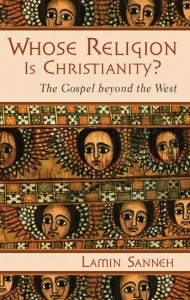This morning I read a letter I wrote to my church, Austin City Life. Here it is in full. If you’re part of ACL, please take the time read and reflect and act on it.
To my fellow saints of Austin City Life,
It has been an immense joy to be the church with you over these past couple of years. Through your love for Christ and one another, I have fallen in love with the church all over again. Thank you.
This is no naïve infatuation. I have been consistently challenged by my own sin and shortcomings, as well as yours, but through our common hope in the gospel I have grown fonder of you, and what we are all becoming in Christ.
Together we are experiencing a low-level hum of gospel renewal. Some Christians are rediscovering the gospel all over again. Other Christians are discovering it for the first time, and still more of you, who held no claim to “Christian†at all, have discovered just how beautiful and essential Christ truly is. This is leading to more and more community and mission. For this I praise God.
In Philippians 2:5, Paul told the church to “have this attitude which was in Christ Jesus.†What attitude?
though he was in ​the form of God, did not count equality with God ​a thing to be grasped, but ​made himself nothing, taking the form of a servant, ​being born in the likeness of men. And being found in human form, he humbled himself by ​becoming obedient to the point of death, ​even death on a cross. (Phil 2:6-8)
As I labor to see Christ formed in us, I long for us to be “obedient to the point of deathâ€, death to comfort, convenience, and importance, in order be servant-formed communities that give life to others and our city. This is a matter of faith and it is a matter of obedience. Will you join me in having this attitude, which was in Christ Jesus by:
- Caring for the children of our church family by showing them Jesus, keeping them safe, and loving them well. If you aren’t serving our kids, I’m asking you to start serving them right away unless you have a good reason not to.
- Look for new ways to be obedient to the point of death and serve others. As we continue to press into gospel renewal, God is calling us keep less and give more. To embrace sacrifice over convenience in an expression of love for one another, our neighbors, and our city.
- Pray with me for God’s provision for a new Sunday gathering space. Our last day in the Parish will be March 14. The staff have been searching and praying faithfully. Please join us in this.
- Pray for God to provide like-minded elders to join me in shepherding our church. In order to grow with biblical integrity and health, we need more than one elder. Ask God to raise them up.
These are all ways that we can have the attitude of Christ Jesus. They require a persevering belief in the gospel, an abiding commitment to being family, and a dedication to see all of life as mission. We will do it imperfectly, but let us do it boldly.
With you in Jesus,
Pastor Jonathan




